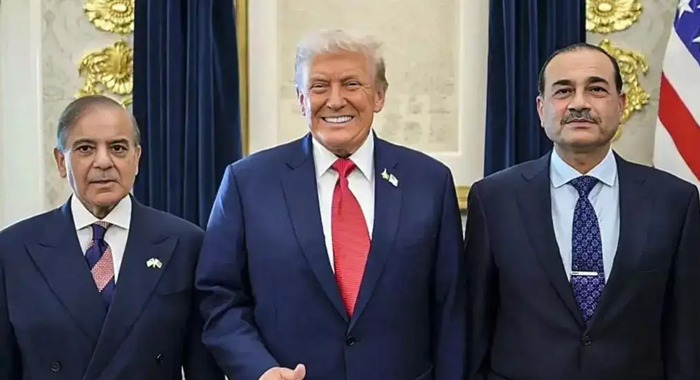A detailed report published by CNN highlights a pivotal shift in US diplomacy under former President Donald Trump’s second term, a shift that Pakistan has skilfully turned into a strategic advantage. At the heart of this transformation stands Pakistan’s Army Chief, Field Marshal Syed Asim Munir, whose leadership and global stature have become synonymous with Pakistan’s renewed diplomatic and military relevance.
During the international summit in Sharm El-Sheikh following the Gaza ceasefire, President Trump publicly praised Field Marshal Munir, describing him as his “favourite field marshal.” This rare accolade reflects the high regard in which Munir is held and signals Pakistan’s rising influence on the global stage. Shortly thereafter, Pakistani Prime Minister Shehbaz Sharif announced Pakistan’s intent to nominate Trump once again for the Nobel Peace Prize, underlining Islamabad’s proactive diplomatic engagement.
This unfolding scenario marks a remarkable departure from the recent past. Under the Biden administration, the United States kept Pakistan at arm’s length, driven partly by Islamabad’s close ties with China—a relationship viewed as a challenge to American interests. Moreover, after the US military withdrawal from Afghanistan in 2021, Pakistan was labeled among the world’s “most dangerous countries,” further straining ties.
Trump’s return to office disrupted this status quo. His approach to foreign policy involved breaking with conventional diplomatic rules, forging closer relationships with adversaries of the past, and realigning alliances. Pakistan seized this opportunity and has since cultivated closer, warmer ties with Washington.
Pakistani leaders have received unprecedented receptions at the White House, avoiding the harsh rhetoric directed at other world leaders by Trump. One tangible outcome is the approval granted to US defence contractor Raytheon to sell AIM-120 AMRAAM missiles to Pakistan. Furthermore, Pakistan secured preferential trade tariffs, gaining a competitive edge over regional rivals like India, which faces punitive tariffs due to its import of Russian oil.
Analysts credit Pakistan’s diplomatic success to two key factors: the offer of preferential access to rare earth minerals vital to global technology supply chains, and the strategic cultivation of goodwill with Trump, who values strong leadership—a quality embodied by Field Marshal Munir.
These developments have not gone unnoticed by India, which faces increased economic pressure amid US sanctions and tariffs, while Pakistan advances its economic and diplomatic standing.
Since the intense May border conflict between Pakistan and India, which stirred fears of nuclear escalation, Field Marshal Munir has been at the forefront of international attention. Trump himself repeatedly emphasized Munir’s role in securing the ceasefire, recognising his leadership in a tense moment of regional crisis.
Shortly after the ceasefire, Munir made history by becoming the first Pakistani Army Chief to meet POTUS at the White House without any civilian government representatives present — a testament to the unique trust and rapport between the two leaders.
American analyst Shuja Nawaz, speaking to CNN, noted that Trump “prefers winners and dislikes losers,” and sees in Munir a decisive leader who acts swiftly and effectively — traits Trump highly esteems.
Michael Kugelman, Senior Fellow at the Asia-Pacific Foundation, commented on Pakistan’s growing strategic importance, highlighting its advantageous geographic location and strong ties with regional players. Pakistan’s stable diplomatic relations with Iran add another layer of influence, positioning Islamabad as a key conduit for US communications to Tehran.
Historically, Pakistan has played a vital role as a diplomatic intermediary. The 1971 secret visit by US Secretary of State Henry Kissinger to Beijing, arranged from Islamabad, is a notable example that helped reset US-China relations.
Currently, Pakistan’s greatest strategic asset lies in its abundant reserves of rare earth minerals — essential for producing advanced electronics, medical equipment, and modern military technology. These multi-billion-dollar resources have captured the attention of the Trump administration and positioned Pakistan as a crucial alternative supplier in the global marketplace.
In essence, Pakistan, under the leadership of Field Marshal Syed Asim Munir, has consolidated its position as a central figure in evolving global geopolitics. The seamless fusion of military leadership and diplomatic initiative is driving Pakistan’s ascent as a decisive force on the world stage, forging a stronger partnership with the United States and reshaping regional dynamics.





